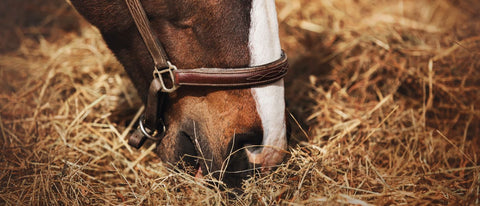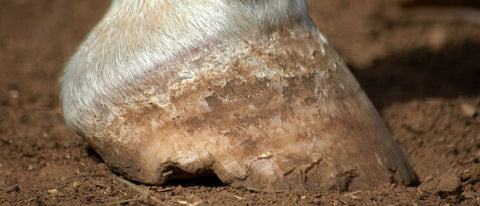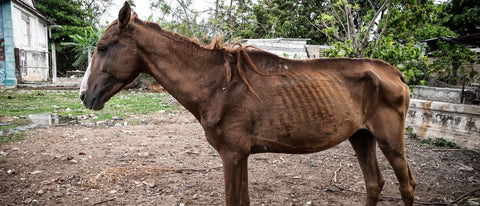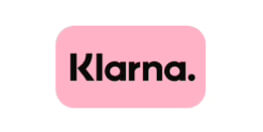
Florian ist aufgewachsen auf einem Bauernhof. Umgeben von Pferden, entdeckte er früh seine Faszination für diese majestätischen Tiere. Inspiriert von seiner reitbegeisterten Mutter, entwickelte er das Nahrungsergänzungmittel - Pferdegold. Seine tiefe Verbundenheit zur Natur und die leidenschaftliche Hingabe zu Pferden trieben ihn an, sein Unternehmen zu gründen.
Every horse has its own preferences and needs, and feeding should be tailored to these needs.
A carefully selected feeding plan can help your horse achieve greater vitality and joy in life.
If you're wondering how to feed your horse properly, you've come to the right place. In this guide, we'll look at what really matters when it comes to feeding and nourishing a horse.

Feeding horses: the importance of a balanced diet
A horse's diet can have a direct impact on its performance and well-being.
The right feed for your horse can make the difference between whether your horse is full of energy and joy of life or whether it stands around in the pasture feeling dull and tired.
Feeding a horse properly basically means ensuring that it has a balanced diet that ensures it contains all the necessary nutrients.
Only in this way can the horse develop its full potential.

Perfect for your horse: Pferdegold® supplementary feed!
These specially developed supplements support your horse's diet and provide it with natural nutrients. Made in Germany, grain-free and drug-free, they come with a 30-day money-back guarantee.
Try it now!10 proven expert tips for horse feeding at a glance
1. Regularity is key: Establish regular feeding times. Horses are creatures of habit and benefit from a fixed feeding schedule, which minimizes stress and food jealousy.
2. Small portions, big impact: Smaller feed amounts are better. A horse's stomach is small and not designed for large portions. Several smaller meals spread throughout the day are ideal.
3. Hay before concentrate: Hay first, then concentrate. Feeding hay first prevents the horse from gulping down concentrate and can reduce the risk of colic.
4. Crude fiber is key: Crude fiber is essential. Hay and grass are important sources of crude fiber that can ensure healthy digestion in horses.
5. Encourage longer feeding times: Ensure a longer feeding time. This prevents boredom and behavioral problems. You can use several methods to extend the feeding time:
-
Use hay nets: The tight mesh nets require horses to work harder to reach the hay, which extends feeding time.
-
Feed racks with grids: These racks allow the horse to eat more slowly and consciously.
-
Food balls: These toys release food only gradually as the horse plays with them.
-
Several small feeding stations: Distribute the feed in different locations so that the horse has to move between the feeding stations.
- Lower energy density feed: Feed that contains fewer calories per bite requires the horse to eat more of it to meet its energy needs.
These methods not only extend the feeding time, but also promote the horses' natural eating behavior and prevent behavioral problems.
6. Water – the elixir of life: Always provide plenty of fresh water. It sounds incredible, but a horse can drink between 30 and 80 liters of water per day.
7. Keep an eye on protein: Pay attention to the protein content. Too much protein in the food can put a strain on the detoxification organs, such as the liver, and in the worst case, lead to diarrhea.
8. Gentle feed changes: Always make feed changes slowly. Sudden feed changes can stress the digestive system and lead to colic.
9. Special feed for horses: Use special horse feed. Avoid fattening feed or silage/haylage, which, despite their popularity and convenience, can lead to acidosis and nutrition-related health problems. You should also avoid feeding feed intended for other animals, as these may contain ingredients harmful to horses.
10. Store feed carefully: Store feed properly. A cool, dry place away from direct contact with the ground is ideal to prevent mold growth and pests.
Which feeding is suitable for which horse type?
Not every horse has the same nutritional needs. A racehorse requires a different diet than a leisure horse or an older horse. It's important to meet each horse's individual needs and adjust feeding accordingly. Factors such as age, activity level, and health status play a crucial role. By observing your horse and knowing its needs, you can ensure it receives the right nutrition.
Hay, concentrate or pasture: What is best for your horse?
✔ Hay for horses: Hay is a main component in a horse's diet and is an important source of roughage.
Roughage includes coarse-fiber feedstuffs such as hay and grass, which, thanks to their high fiber content, stimulate digestion and promote a healthy intestinal flora. They also provide the horse with essential fiber.
Important : The hay you feed should always be of high quality to avoid nutritional deficiencies and even illness if the hay is moldy. This way, you can help ensure your animal's well-being.
✔ Concentrated feed for horses: Concentrated feed usually consists of grain, pellets or special mixtures and provides a concentrated source of energy.
It is often used to meet the increased energy needs of sport or working horses. However, it is important to know how much concentrate horses can eat to avoid overfeeding or nutrient imbalances. Concentrate feed should never be given alone, but always in combination with roughage.
✔ Pasture: Pasture is the most natural food source for horses. Here, they can graze and exercise at the same time, which is consistent with their natural behavior. When asked, " What do horses like to eat? " , fresh grass is often at the top of the list.
However, it's important not to overgraze the area and not to let the horses graze too early on grass that's too high in sugar and still short—ideally, it should be the height of a beer bottle. It's also crucial that the grass is lean and of high quality, similar to the grasses that grow in steppe regions, where horses originally came from.
Lean grass can help prevent hyperglycaemia, which often occurs in high-performance grasses bred for cattle.

How much hay does a horse need daily?
A horse's hay needs depend on various factors, such as size, weight, and activity level. In general, a horse should consume 1.5 to 2.5% of its body weight in hay daily. This means that a 500 kg horse needs between 7.5 and 12.5 kg of hay per day .
You can calculate how much hay your horse should eat per day to ensure it is getting enough of the nutrients it needs.
Which types of hay are ideal and how do you feed them properly?
There are different types of hay that differ in their composition and nutrient content. The most common types of hay include meadow hay, mountain hay , and herbal hay .
-
Meadow hay is the most common and offers a balanced mix of grasses and herbs.
-
Mountain hay comes from higher altitudes and is often particularly rich in valuable plants.
-
Herbal hay , as the name suggests, has a high herbal content and can be particularly valuable for horses with specific health needs.
Regardless of the type of hay, you should always make sure that the hay is dry, mold-free and of good quality.
How often should you give your horse concentrated feed?
The frequency of feeding concentrate depends on the horse's individual needs . It is generally recommended to feed horses concentrate in several small portions throughout the day, rather than in one large amount at once.
This can help regulate digestion and prevent the horse from eating the feed too quickly. For most horses , two to three smaller meals of concentrated feed per day are ideal.
However, it is recommended that you discuss the exact amount and frequency with a veterinarian or nutritionist for your horse.

Amino acid deficiency in horse feed: What you can do!
Amino acids are the building blocks of proteins and play a crucial role in a horse's health and performance. A deficiency in essential amino acids can even lead to growth disorders, muscle atrophy, and other health problems in the long term.
It is therefore important to regularly check the amino acid content in the feed and, if necessary, to compensate for it with special supplementary feed.
A balanced diet containing all the necessary amino acids supports the horse's well-being and performance .
How important are minerals, vitamins and supplementary feed?
Minerals and vitamins are essential nutrients vital to a horse's health and well-being . They support numerous bodily functions , from bone health to energy production.
What are your horse's vitamin and mineral requirements?
Every horse is unique, and so its vitamin and mineral needs vary. A young foal in its growth phase has different nutritional requirements than a high-performance sport horse.
And pregnant mares or those nursing a foal? They have their own specific needs. Therefore, it is of utmost importance to know each horse's individual nutritional requirements.
Regular checks and, if necessary, adjustments to the feed ration are essential for your horse's well-being.
Energy requirements of horses: What you should know!
A horse's energy requirements depend on various factors, including activity level, age, health status, and environmental conditions. Addressing the horse's specific requirements and individual needs is key to optimal nutrition.
Feeding examples for optimal feeding
| Activity level | Hay (kg) | Concentrated feed (kg) | Mineral feed (g) | Oil (ml) |
| retirement | 8 – 10 | 0 – 0.5 | 100 – 150 | 0 |
| Easy work | 7 – 9 | 0.5 – 1 | 150 – 200 | 50 – 100 |
| Moderate work | 6 – 8 | 1 – 2 | 200 – 250 | 100 – 200 |
| Hard work | 5 – 7 | 2 – 3 | 250 – 300 | 200 – 300 |
| High performance | 4 – 6 | 3 – 4 | 300 – 350 | 300 – 400 |
The table above provides a general guideline for feeding horses based on their energy needs. It is important to regularly review and adjust your horse's feeding plan.
If you are unsure, a ration calculation by a veterinarian or equine nutritionist can be helpful in determining the optimal feeding plan for your horse.
Beware of these prohibited ingredients in horse feed!
There are certain ingredients that should not be present in horse feed because they can be harmful to the horse's health. These include, for example , ragwort , which contains toxic alkaloids, and certain mold toxins , which can be found in spoiled feed.
Some horses are allergic to certain grains such as oats or barley . Forage mites , which thrive in protein-rich grains and hay, can also trigger allergies. Hay dust is another problem, which can lead to respiratory problems in horses with hay dust allergies. Cheap hay, in particular, is often dusty.
The dust contains fungal spores, mites, mold, yeast, and germs. Surprisingly, some horses can also be allergic to seemingly harmless herbs like dandelion .
It is therefore crucial to read the food label carefully and ensure that it does not contain any prohibited or harmful ingredients.
If you suspect an allergy or intolerance, it is advisable to seek independent nutritional advice to find the right feed for your horse.

Feed analysis: How and why you should have it tested
Feed analysis is a valuable tool for determining the exact composition of your horse's feed . It allows you to ensure that your horse receives all the necessary nutrients and isn't consuming any harmful substances .
Regularly checking your feed through professional analysis gives you additional peace of mind that you are doing the best for your horse.
There are specialized laboratories and service providers that offer feed analysis. It's best to contact your trusted veterinarian or equine specialist for recommendations for trustworthy providers.

Perfect for your horse: Pferdegold® supplementary feed!
These specially developed supplements support your horse's diet and provide it with natural nutrients. Made in Germany, grain-free and drug-free, they come with a 30-day money-back guarantee.
Try it now!Wonders of nature: Why herbs are the insider tip par excellence
Herbs are not only a valuable component in human nutrition, but also in horse feed.
They provide a variety of vitamins, minerals and secondary plant substances that can support the horse's health and well-being.
From strengthening the immune system to supporting digestion , the power of herbs is versatile and natural.
Therefore, they're a real insider tip for any horse owner who wants to do something good for their four-legged friend. Of course, that's only true if your horse doesn't have an allergy to certain plants or herbs, as mentioned above.
Conclusion
Feeding a horse is sometimes both an art and a science. It's not just about satisfying hunger, but also about providing your horse with optimal nutrition to promote its well-being.
The secret to a healthy, happy and efficient horse can lie in the right diet.
FAQ
The truth about horse muesli: How effective are they really?
Horse muesli is popular with many riders, but it is important to pay attention to the sugar and starch content as well as possible preservatives or artificial additives.
Some mueslis can be problematic for some horses. There's also a risk that essential nutrients may be missing from a muesli-only diet.
Therefore, muesli should be chosen carefully and considered only as part of a balanced diet.
Stalled vs. open stable: How does the type of housing affect horse nutrition?
The type of housing has a direct impact on the horse's energy requirements and nutrition. Horses kept in stables move less and may therefore have lower energy requirements than horses kept in open stables.
In addition, access to fresh grass and social interaction in open-stall housing can influence feeding habits. It is important to adapt feeding to the housing system to avoid over- or under-feeding.
How does the diet of leisure horses and sport horses differ?
Leisure horses generally have lower energy requirements than sport horses that are regularly trained and participate in competitions.
Sport horses require a higher intake of calories, proteins and certain minerals to improve their performance.
It is important to adapt the diet to the horse's individual activity level and specific needs.
Discover more about nutrition for your horse in our blog articles:

















